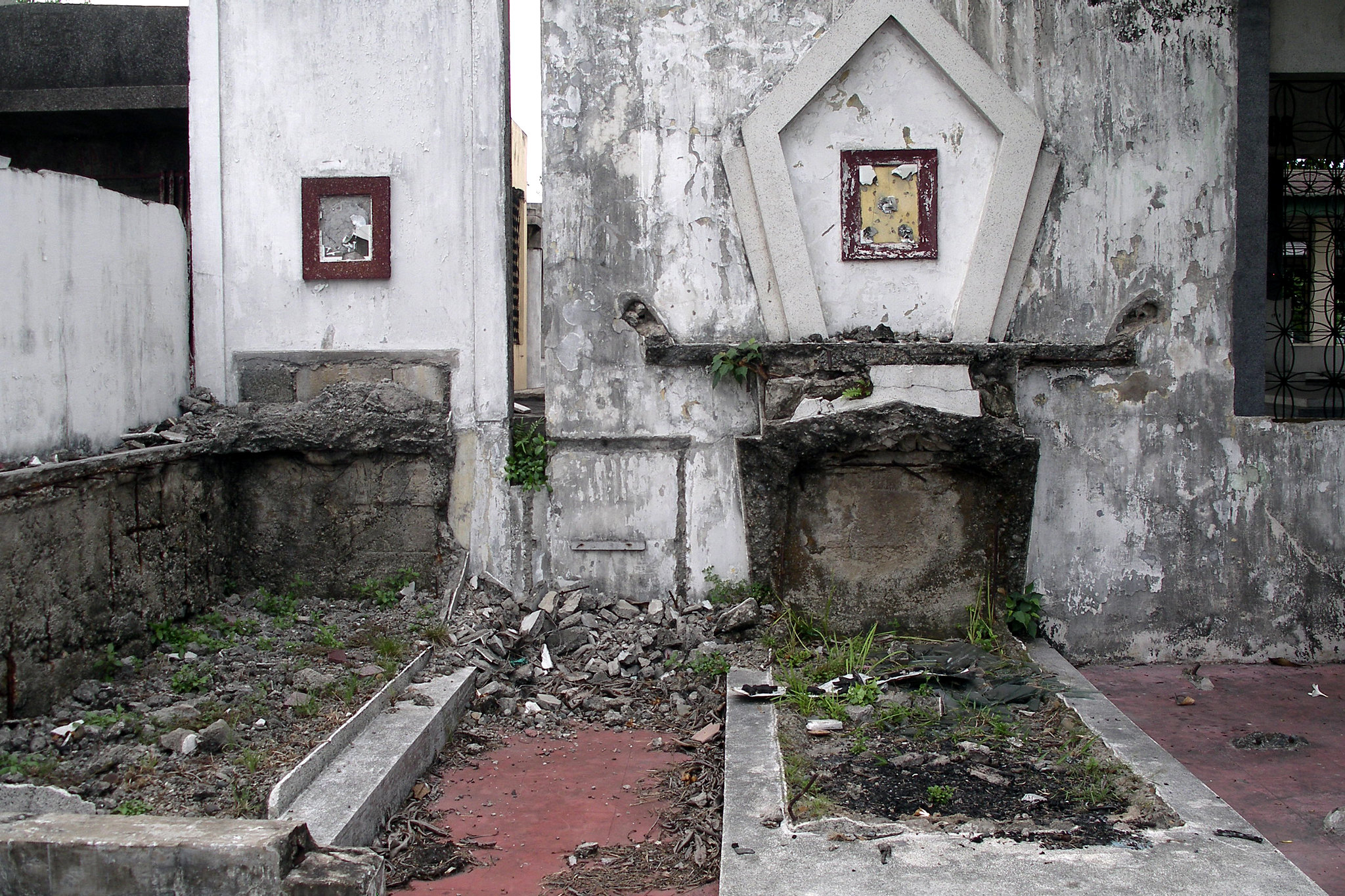Earning a living from the dead

Monthly, the customers paid him PHP200 for maintaining the tombs of their loved ones. The rate he said is based on the jobs required for them to do. (File Photo: Magalie L’Abbé/Flickr, CC BY-NC 2.0)
ILOILO CITY — Being dead does not necessarily render one useless, as found by people living or residing near the cemeteries.
Among those who found this advantageous is Giobil Marfil, 31, married with four kids.
He shared that he has been doing manual labor at the Tanza cemetery in Barangay Tanza, City Proper since he was young and has earned patrons or long-standing customers.
“Last year I maintained 19 sepulchers but now I only have 10 because others opted that they will be the ones to clean the tombs of their families,” he said in the dialect.
Monthly, the customers paid him PHP200 for maintaining the tombs of their loved ones. The rate he said is based on the jobs required for them to do.
“Almost everyone who lives within the surrounding of this cemetery works here, even children and women,” he said.
Tanza cemetery, the biggest public cemetery in the city, spans four hectares and has more than 10,000 tombs. There are also adjacent cemeteries such as the Chinese cemetery, Aglipay Church and the Roman Catholic Church.
He was fortunate to have found loyal customers even if he is not a member of the association of workers inside the cemetery.
The association was significant to make it easier to trace if there are concerns with regard to the tombs that they are constructing or being maintained.
“I am not a member but I volunteered to help when a portion of the cemetery collapsed,” he said. While he earns from working as a laborer inside the cemetery, yet he is not totally dependent on this source.
Mateo Nolasco, 63 years old, is a member of the workers association inside the cemetery, composed of some 40 workers.
He said working inside the cemetery has been handed down to him by his parents. “We have our own customers. Every year, they ask us to clean the tombs of their dead family members,” he said.
He shared that they do not demand payment, but out of the goodness of the families of tombs that they maintain, they get remuneration.
Their work ranges from maintaining the cleanliness of the tomb, washing, and repainting among others. Sometimes, they get PHP150 per tomb and sometimes higher.
Nolasco admitted that their earning has helped them but there are also times when they get no payment, especially when the family of the grave they maintain is out of the country.
Meanwhile, Thirdy, Noynoy and Dave, all minors, shared that every year they work inside the cemetery especially during the All Saints’ Day and All Souls’ Day, which fall on their semestral break.
Since Oct 27, they already cleaned 10 tombs. For washing or dousing the tombs, they charge PHP200; cutting of grasses, PHP100; and painting and washing, PHP300.
They shared that they divide their income equally. They use what they earn to buy food and for their other needs.
Cemetery Supervisor Jun Villarosa said that such kind of work is not banned by the local government as he cited that it is also helpful to the locals. “We do not interfere with their arrangement,” Villarosa said.
He added that the task of their City Environment and Natural Resources Office (CENRO) is to make sure that the cemeteries are maintained and permits are in place during burials.
This Undas, he just urged the cooperation of the public to be mindful of their garbage when they visit their dearly departed.





















